Niacinamide Vs Vitamin C Which One To Use?
Niacinamide and vitamin C are two of the most talked-about ingredients in skincare today, each celebrated for their unique benefits and effectiveness. Niacinamide, a form of vitamin B3, is renowned for its ability to improve skin barrier function, reduce inflammation, and even out skin tone. Vitamin C, an essential antioxidant, is praised for its brightening effects, protection against environmental damage, and promotion of collagen production.
Benefits of Niacinamide

General Characteristics: Niacinamide, also known as vitamin B3, is a versatile and gentle ingredient suitable for all skin types, including sensitive skin. It is often well-tolerated and can be used alongside other skincare ingredients without causing irritation.
Key Benefits:
- Reduces Hyperpigmentation and Uneven Skin Tone: Niacinamide helps lighten dark spots and even out skin tone by inhibiting melanin production, leading to a more uniform complexion.
- Minimizes the Appearance of Wrinkles and Fine Lines: By boosting collagen production, niacinamide improves skin elasticity and smooths out fine lines and wrinkles, contributing to a more youthful appearance.
- Alleviates Skin Sensitivity and Reduces Redness: Its anti-inflammatory properties help calm irritated skin, reduce redness, and make it beneficial for conditions like rosacea and acne.
- Balances Oil Production and Minimizes the Appearance of Large Pores: Niacinamide helps regulate sebum production, which can reduce excess oil and refine the appearance of pores.
Effective at Lower Concentrations: Niacinamide is effective at concentrations as low as 2% to 5%, making it accessible and practical for daily use in various skincare formulations.
Additional Benefits:
- Soothes and Strengthens the Skin Barrier: Niacinamide enhances the skin’s natural barrier, improving its ability to retain moisture and protect against environmental damage, which supports overall skin health.
Benefits of Vitamin C

Here is another article if you want to know Everything about [Vitamin C] for skincare
General Characteristics: Vitamin C is a potent antioxidant celebrated for its powerful skin-brightening and anti-aging effects. It combats oxidative stress, which can lead to premature aging and skin damage, and is a staple ingredient in many skincare routines for its remarkable benefits.
Key Benefits:
- Boosts Collagen Production for Firmer Skin: Vitamin C stimulates collagen synthesis, which helps to improve skin firmness and elasticity, reducing the appearance of fine lines and wrinkles.
- Improves Skin Tone and Reduces Signs of Premature Aging: It lightens dark spots, hyperpigmentation, and uneven skin tone, leading to a more radiant and youthful complexion. Vitamin C also helps to protect the skin from environmental damage, reducing the visible effects of sun exposure and pollution.
Formulation:
- Effective Mainly in the L-Ascorbic Acid Form: L-ascorbic acid is the most effective and stable form of vitamin C used in skincare. It has been widely researched and shown to deliver significant anti-aging and brightening benefits.
- Requires Precise Formulation to Remain Stable and Effective: Vitamin C is sensitive to light and air, which can cause it to degrade and lose effectiveness. Therefore, it is crucial to use products with stable formulations and proper packaging to ensure the ingredient remains active and effective.
Gentleness and Potential Irritation
Niacinamide:
- Gentleness: Niacinamide is generally well-tolerated by most skin types and is less likely to cause irritation. Its gentle nature makes it suitable for sensitive skin and for use in conjunction with other active ingredients.
- Reduces Redness: Beyond its soothing properties, niacinamide helps to reduce redness and inflammation, further enhancing its suitability for those with reactive or delicate skin.
- Improves Skin Barrier Function: By strengthening the skin’s barrier, niacinamide helps to lock in moisture and protect the skin from environmental irritants, reducing the likelihood of irritation.
Vitamin C:
- Potential for Irritation: Vitamin C, particularly in high concentrations or certain formulations, can sometimes cause irritation, especially for those with sensitive skin. Its acidity can lead to redness, dryness, or peeling.
- Stability and Efficacy: The stability of vitamin C formulations is crucial to minimize irritation. Products with stable forms of vitamin C (like L-ascorbic acid) and proper packaging can reduce the risk of irritation while maintaining efficacy. Users with sensitive skin should start with lower concentrations or formulations designed to be less irritating.
Using Niacinamide and Vitamin C Together
Compatibility: Niacinamide and vitamin C are compatible and CAN be effectively used together in a skincare routine. Unlike older beliefs that these ingredients might neutralize each other, recent research and dermatological practice show that they can work synergistically to enhance skin benefits.
Application Tips:
- Vitamin C: Best used in the morning, vitamin C provides antioxidant protection against environmental damage and supports sunscreen efficacy. Apply it after cleansing and before moisturizing to maximize its brightening and anti-aging effects.
- Niacinamide: Can be used both in the morning and at night. It complements other treatments and helps soothe the skin while improving barrier function. Applying niacinamide after vitamin C (in the morning) or as part of your evening routine can enhance overall skin health and address various concerns like hyperpigmentation and irritation.
Best Results

Combination Use: Incorporating both niacinamide and vitamin C into your skincare routine can provide a powerful boost to your skin health. Niacinamide’s soothing, barrier-strengthening properties complement vitamin C’s brightening and anti-aging effects, leading to improved skin texture, tone, and overall appearance.
Comprehensive Approach: For even better results, consider combining niacinamide and vitamin C with other treatments, such as retinol. Retinol can enhance cell turnover and improve fine lines, making it a great complement to the antioxidant and barrier-boosting properties of niacinamide and vitamin C. Just be sure to introduce new products gradually and monitor your skin’s response to avoid overloading or irritating your skin.
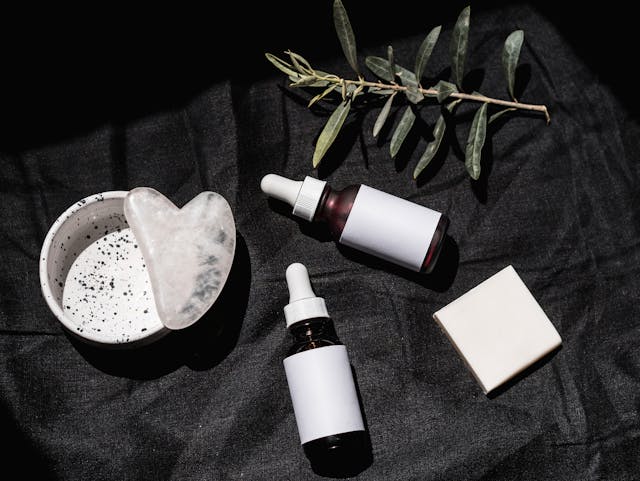
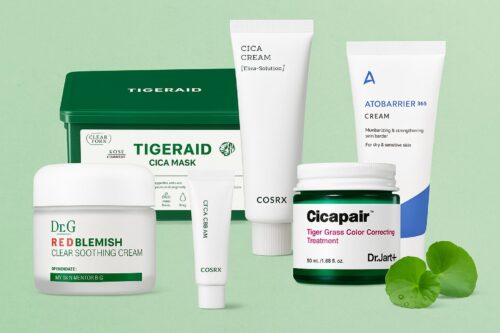
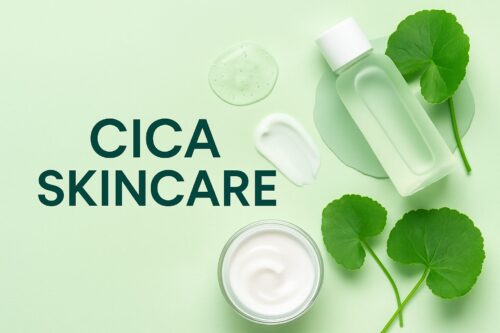




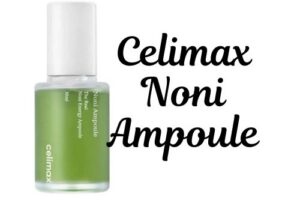
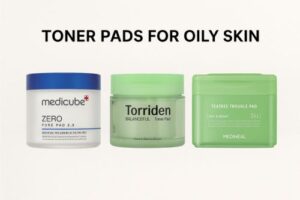



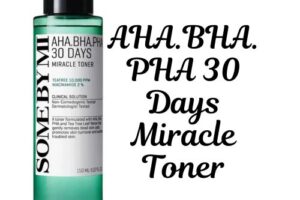

4 comments